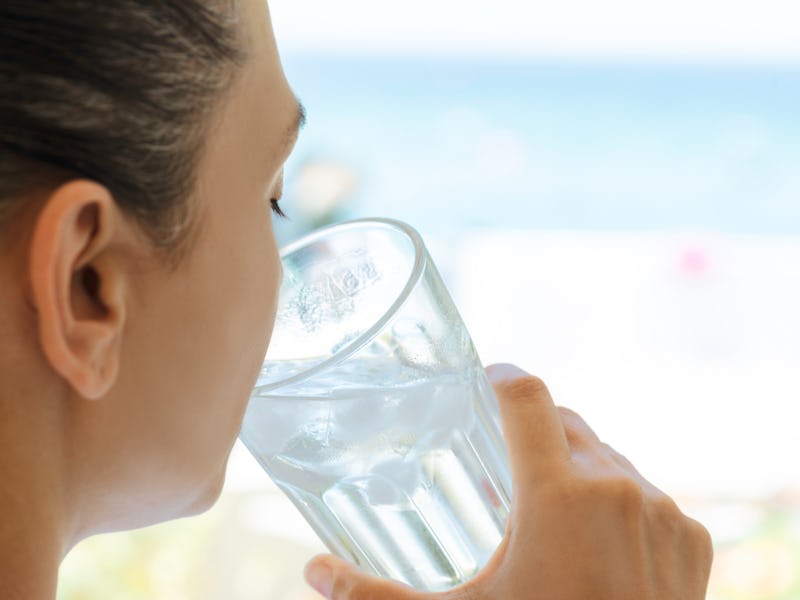Does Cold Water Actually Cool You Off? Hydration Experts Reveal The Icy Truth
Ice water really is refreshing in more ways than one.

This summer, with its record-high temperatures, American tourists in Europe found themselves yearning for unlimited, complimentary ice water, as is the custom in U.S. restaurants. But from Barcelona to Rome, asking for tap water will get you a glass of room-temperature liquid — probably with no refills and definitely without ice.
But do Americans have a point? Does ice-cold water help our bodies cool down on excruciatingly hot days? It turns out we might.
Cold water “acts as a heat sink,” Tamara Hew-Butler, professor of exercise physiology at Wayne State University, tells Inverse. Cold water cools our bodies because it absorbs some of the excess heat we’re feeling.
Our bodies aren’t very efficient, which is why they produce so much heat, says Stavros Kavouras, a nutrition professor at Arizona State University. Usually, that heat dissipates into the surrounding environment. But when it’s hot — or worse, humid — outside, then our bodies have a harder time getting rid of the heat it produces.
Cold water actively lowers the temperature of our bodies, so when it’s too hot to sweat off all the heat, cold water can bring it down. What’s more, ice might be even better than just cold water. Kavouras says this is because of phase change, which is when a substance changes from one state to another, in this case, from solid to liquid. It takes energy to make that change happen. The good news is that heat is a form of energy. If our bodies are full of surplus heat, we can use some of it to melt the ice we consume. Elite athletes, Kavouras says, might even drink ice slush before a race if they run on a particularly hot day.
The other piece of the puzzle, Hew-Butler says, is that cold water tastes much more refreshing than tepid water. If it tastes better, we’re more likely to drink it, especially if we’re feeling uncomfortably hot. “If you want people to drink more on a hot day, the cooler the water, it'll make them drink more,” she says. More water means more hydration.
Kavouras says that in his studies of hydration in humans, he makes his subjects drink body-temperature water so that water temperature doesn’t become a variable.
“Cold water is a win-win-win situation,” Kavouras tells Inverse. “It tastes better, you will drink more, [and] it cools you down.”